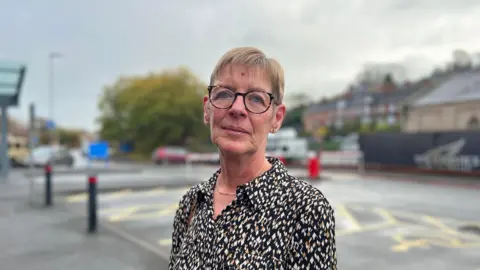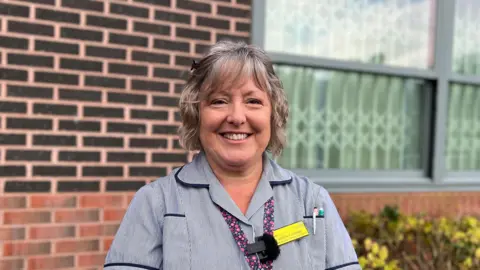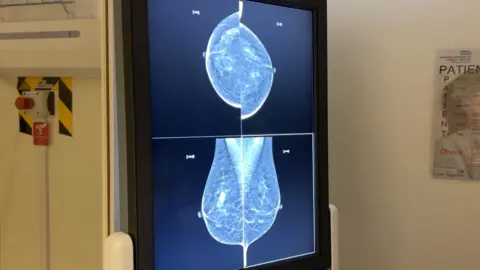'I may not have been here today without mammogram'
 BBC
BBCA woman who was diagnosed with breast cancer despite having no symptoms is encouraging others to attend their routine mammograms.
Judith Loveridge, 61, says she was "shocked" to be told she had the disease and says early detection has helped her get the all clear.
Across South Derbyshire and South East Staffordshire, University Hospitals of Derby and Burton (UHDB) found around 30% of eligible women are not going to their breast screening appointments.
UHDB's lead breast care nurse Jackie Conway says attending is "really important" to detect any issues as soon as possible.

Ms Conway said: "It’s the earliest possible stage that we could pick breast cancer up, when you can’t feel a lump or have any symptoms.
"Some people find it absolutely fine, some people say it feels uncomfortable. We don't get many people who say it's really painful, it's more just the discomfort."
Ms Loveridge was diagnosed with ductal carcinoma in situ (DCIS), an early form of breast cancer, in 2021.
As part of her treatment, she underwent a mastectomy with reconstructive surgery and received chemotherapy.

"I’d got two areas of this cancer in my breast, which meant that I had to have a mastectomy. It was quite a shock to the system," she said.
"If I’d have not gone for that appointment, I genuinely might not be here now.
"If I had waited and waited until maybe I could feel or see something, then that cancer might have progressed further, and I might not be here.
"To go along for a routine mammogram when you've got no signs of anything, you just don't expect to be told anything other than 'everything's fine'.
"The screening takes between five and 10 minutes, and that five to 10 minutes could save your life."
According to Cancer Research UK, breast cancer is the most common cancer in the UK, accounting for 15% of all new cancer cases between 2017 and 2019.
Around 55,500 women and 370 men are diagnosed in the UK each year.
One in seven women in the UK develop breast cancer during their lifetime, and it is more common in older women.
Follow BBC Derby on Facebook, on X, or on Instagram. Send your story ideas to [email protected] or via WhatsApp on 0808 100 2210.
